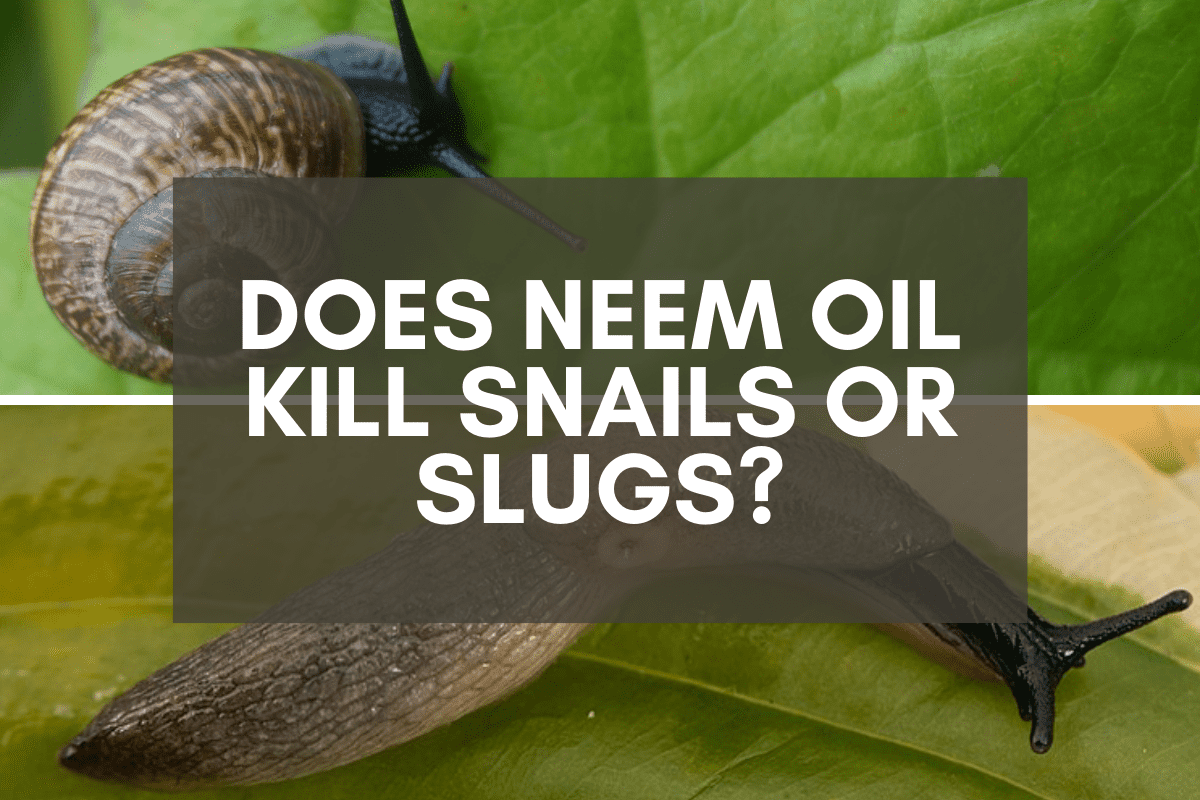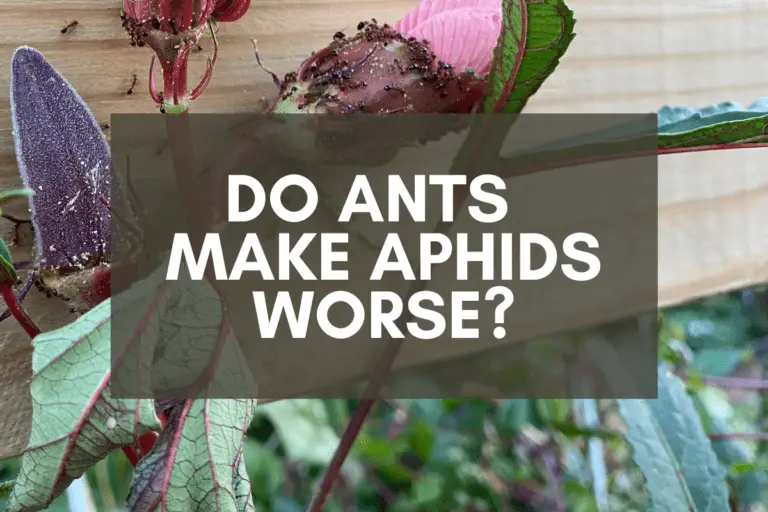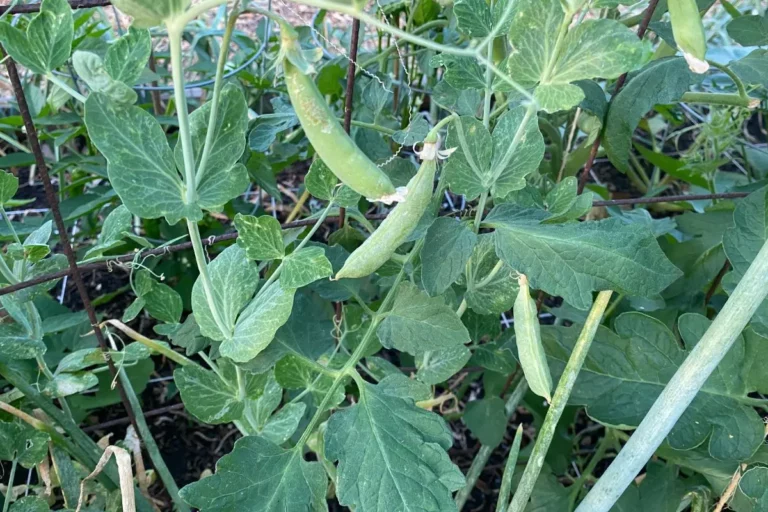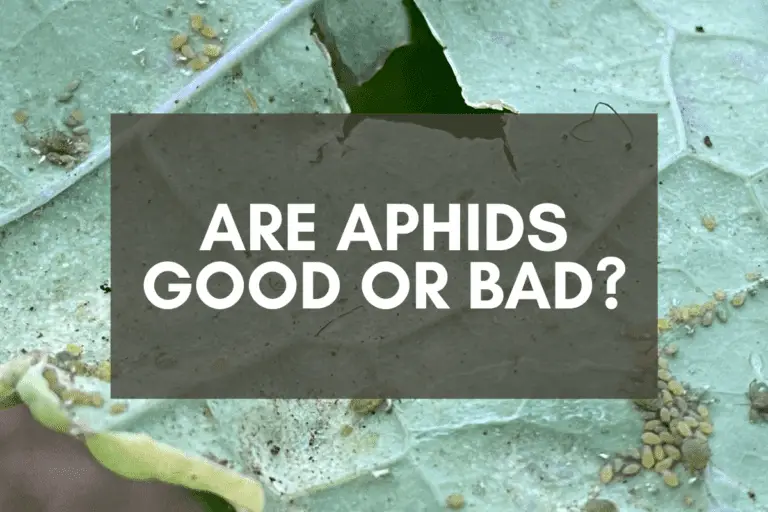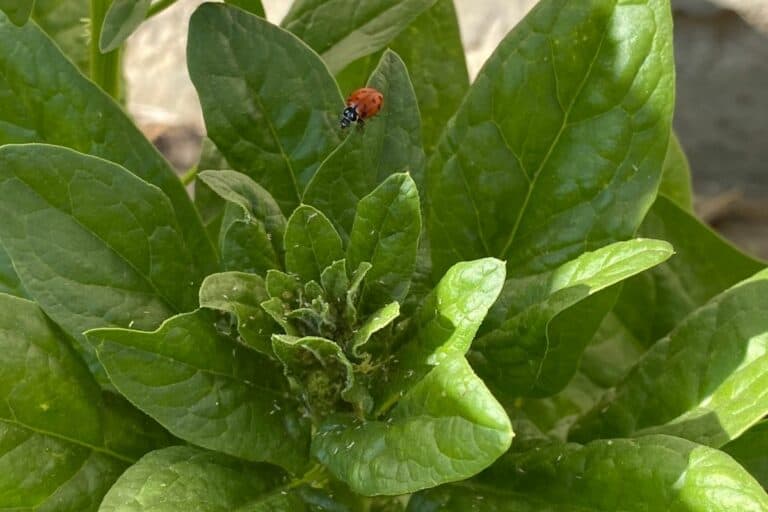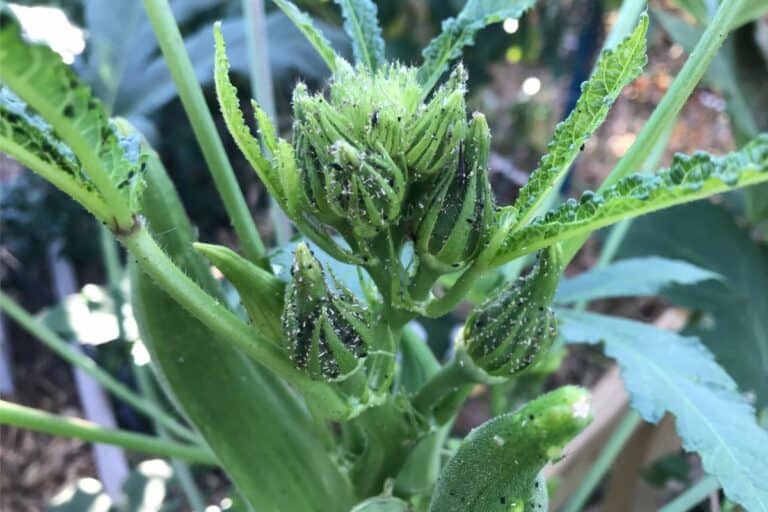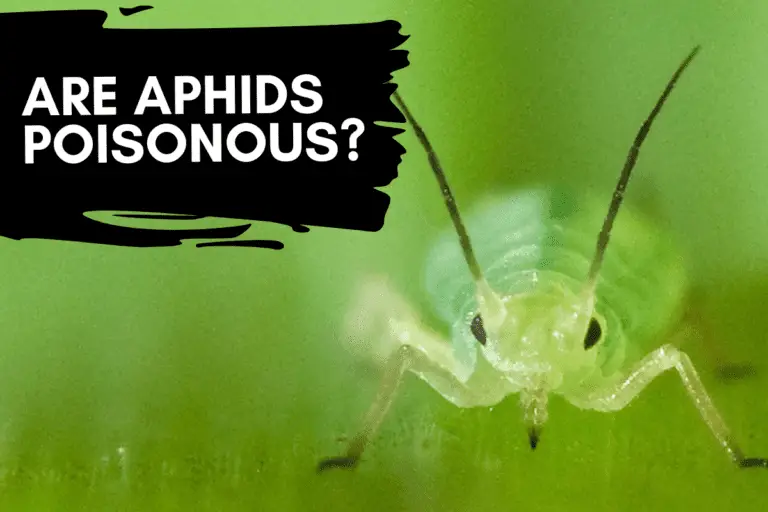Does Neem Oil Kill Snails or Slugs? Here’s What We Know
Two years ago, I had a problem in a few of my raised garden beds. I remember waking up one morning and seeing my month-old pepper plants looking pretty ragged.
I didn’t see any plant-chewing bugs around, so when the problem got worse over the course of the next few days, I figured I must be dealing with snails or slugs of some kind since they munch on plants at night but hide during the day.
I had started using neem oil in my garden for the first time that year–and I was tempted to just spray all of my peppers heavily in the hope that it would serve as a deterrent–but I frankly didn’t know if it would work. Would neem oil repel or kill off snails and slugs?
Neem oil is an ineffective way to repel or get rid of snails and slugs. Studies suggest that it has repellent qualities—although it breaks down quickly so any deterrent effects are going to be temporary—but neem oil typically will not kill off either snails or slugs.
In the article below, you’ll find information related to three important topics:
- What Is Neem Oil, and What Does It Do?
- Will Neem Oil Keep Snails and Slugs Away? What Science Tells Us
- How Do I Get Rid of Snails and Slugs in My Garden?
In general, I don’t like it when bloggers make sweeping claims like “Neem oil doesn’t work on snails and slugs” if those claims aren’t accompanied by scientific evidence of some kind.
Here’s what I mean: All snails and slugs are gastropod mollusks. In scientific taxonomic terms, that means they’re all members of the phylum Mollusca (along with octopi, squid, clams, and many other species) and thus lack any kind of internal skeleton. They’re also members of the class gastropoda, which contains more than 60,000 different slug and snail species.
Given gastropods’ extraordinary biodiversity, we should be careful when making blanket statements about a complex natural insecticide such as neem oil.
However, I think there’s enough scientific evidence available to make some broad generalizations about neem oil’s potential impact on many different gastropod species, so let’s take a look at what science has to say before examining the best methods for keeping snails and slugs away from your plants.
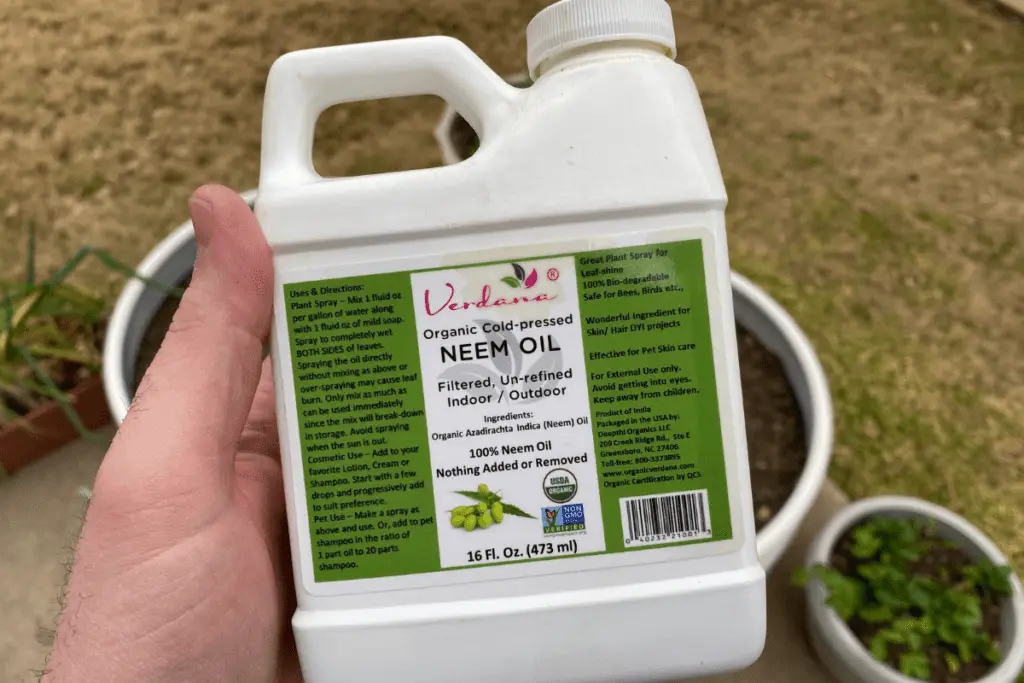
What Is Neem Oil, and What Does It Do?
Before we get into the details involving neem oil’s impacts on snails and slugs, I want to clarify a few things about neem oil in case you’ve never used it in your garden.
Neem oil comes from Azadirachta indica, a tree found in Africa and Southeast Asia, and has been shown to harm or kill off over 200 kinds of bugs because, once ingested, it causes all kinds of biological and hormonal problems: decreased feeding patterns, interrupted growth, fewer eggs and increased egg mortality, wing and leg malformations, problems with molting and reproduction, and increased mortality rates, to name a few.
It typically takes neem oil 4-7 days to kill off susceptible pests since it takes time for azadirachtin, its primary chemical compound, to cause cascading cellular damage. Although neem oil is safe to use on fruits and vegetables, it begins to degrade quickly when mixed with water and exposed to the elements, which is why you’ve got to mix, apply, and store it properly.
Side note: If you’d like to get the most out of your neem oil, check out my 10-step process to making effective neem oil sprays. I also recommend reading up about using neem oil on seedlings and herbs as well as what you need to do if you’ve accidentally applied it before a harvest or if you’re concerned that your neem oil might not be working. The good news is this: You can always wash it off if you ever feel that you’ve applied too much neem oil on your plants.
Care should be taken when applying neem oil to plants–especially plants with wispy, delicate foliage–because it can cause plant burn if applied too often or in too-high doses.
I learned this lesson the hard way a few seasons back when I burned a few of my tomato plants. If you’d like to learn my mistakes, check out this article that describes how I used both neem oil and insecticidal soap to stop an extreme spider mite infestation.
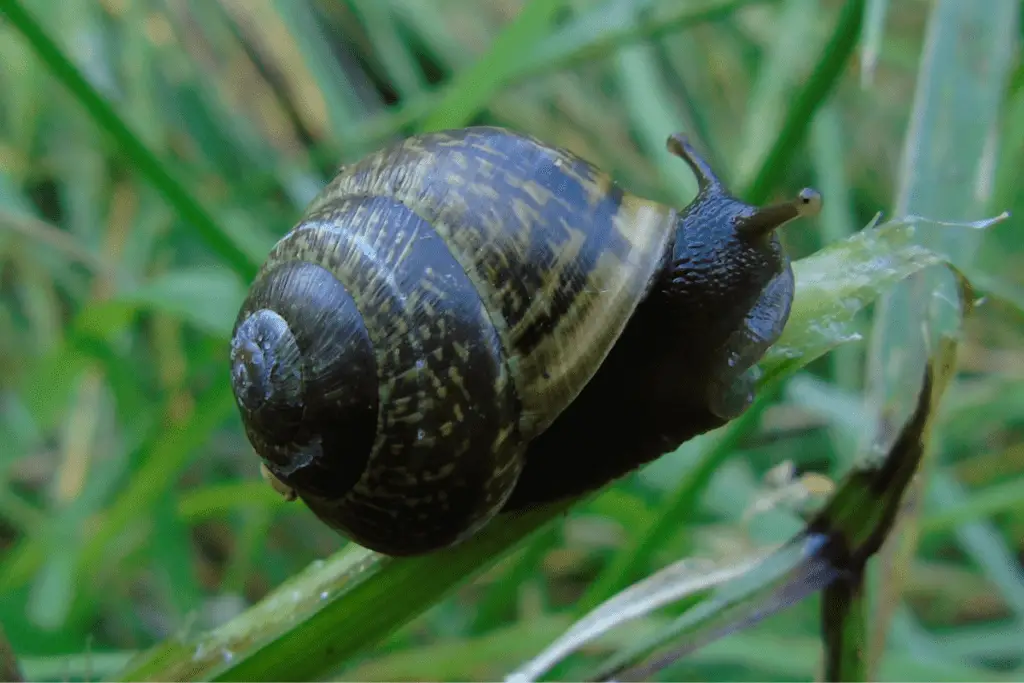
Will Neem Oil Keep Snails or Slugs Away? What Science Tells Us
Now that we’ve covered those neem oil basics, let’s take a look at what scientists have discovered over the past few years regarding neem oil’s potential impacts on gastropods.
To be clear, the research is pretty skimpy compared to the studies that have been published looking at neem oil’s impact on other bugs: aphids, armyworms, bees, butterflies, earthworms, ladybugs, nematodes, spider mites, and stink bugs, to name a few.
But enough has been published to give an outline of what neem oil might do to snails and slugs if they unwittingly ingest it by munching on neem-covered plants.
Neem oil has been shown to temporarily repel certain snail species but likely won’t repel slugs. It decreases reproductive behaviors and even harms some snails while increasing egg mortality rates in both snails and slugs. Unfortunately, it doesn’t seem to have any toxic effects on slugs.
Here’s a brief overview of what researchers have found when using neem oil against both snails and slugs:
- Researchers tested neem oil on Arianta arbustorum, a land snail found throughout Europe and Canada. It didn’t kill the snails, but the treated plants had 75% fewer snails in their vicinity than untreated plants, suggesting that neem oil had a strong repellent effect on Arianta arbustorum.
- A study looked at neem’s impact on the snail species Biomphalaria pefifferi and Bulinus truncatus, but it primarily focused on the species lndoplanorbis exustus and Lymnaea acuminata. The authors found that both pure azadirachtin and neem oil increased the snails’ mortality rates, and they recommend using these products over commercial molluscicides.
- A team of researchers in Hawaii noticed that neem oil acted as a phagostimulant to the snail species Zonitoides arboreus (i.e. it encouraged additional feeding). When combined with the molluscicide Slug-Fest, this treatment method was fairly effective, but neem oil alone only increased the mortality rates of this particular species by 6%.
- A study of the gray field slug (Deroceras reticulatum), a slug that’s particularly destructive across Europe, revealed that neem oil had absolutely no effect on this slug species. It didn’t appear to repel or harm them in any way. The good news: Another study showed that neem oil’s primary ingredient (azadirachtin) killed off 100% of the eggs of D. reticulatum within 24 hours of first exposure.
- Researchers in Florida tested whether neem oil would act as a phagostimulant for the Florida leatherleaf slug (Leidyula floridana). Unlike Z. arboreus, neem oil did nothing to increase the feeding patterns or mortality rates of L. floridana.
- One other study is worth mentioning: Researchers looked at neem oil’s effects on Archachatina marginata and Limicolaria aurora, destructive land snails found mostly in Africa. Unfortunately, exposure to neem oil did nothing to either snail. Interestingly enough, neem extracts derived from bark, roots, and leaves were surprisingly effective at killing off these snails within 2-3 days.
As you’ve probably noticed, there aren’t that many studies that look at the impact of neem oil on snails or slugs. Unfortunately, this means that our knowledge on the subject is very limited.
Given these limitations, however, I feel confident enough to make several general observations about neem oil’s impact on snails and slugs:
- Neem oil will likely have a mild to moderate repellent effect on snails of various species. This isn’t guaranteed to work, but it might, so it’s worth giving it a try at least once if you’ve seen snails around your plants.
- Neem oil will probably reduce pest populations to some degree by increasing egg mortality in snails and slugs. Results will probably be minimal, but it’s theoretically possible given the studies noted above.
- Neem oil might kill off the members of some snail species, but generally speaking, it probably won’t do much of anything to reduce the snail population in your garden in any meaningful way.
- Beyond increasing egg mortality rates in some slug species, neem oil does practically nothing to slugs. It’s an entirely ineffective treatment method and thus shouldn’t be used if you’ve got slugs in your garden.
Now that we know what doesn’t work, let’s take a moment to cover several proven methods to rid your garden of snails and slugs.
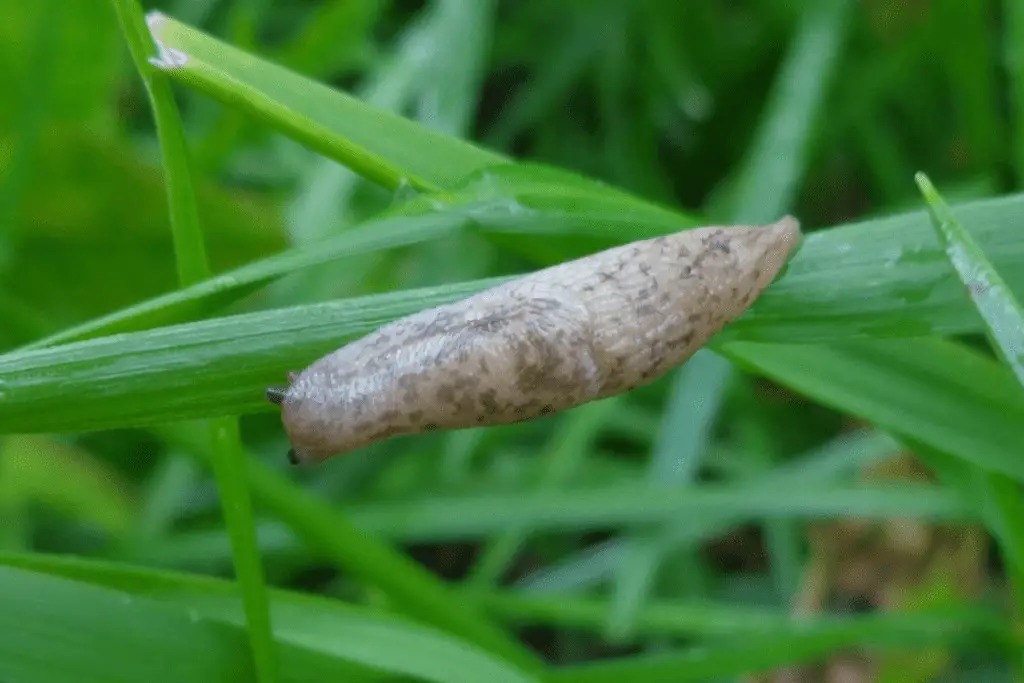
How Do I Get Rid of Snails and Slugs in My Garden?
If you’ve ever googled this question, you’ve likely come across websites with all kinds of varied suggestions, some more practical than others. I’m less interested in all of the theoretically possible ways to rid my garden of snails and slugs and more interested in the 1 or 2 ways that really work.
With that in mind, let’s look at a few tried and true methods of snail and slug treatment.
One of the easiest methods involves the use of bait. Simply put, this usually involves placing pellets of some kind in your garden that will attract snails and then kill them off. There are several different kinds of bait, but here are 4 particularly popular products:
- Corry’s Slug and Snail Killer and Safer Brand Slug and Snail Killer: I’m not going to go into all of the scientific details here, but this snail killer has, as its main active ingredient, ferric sodium EDTA. This kind of product will kill snails and slugs in around 3 days, but be warned: These pellets can harm anything that eats them, so care should be taken when using this product. You can download this EPA fact sheet if you’re interested in learning more.
- Unlike the products above, which use ferric sodium EDTA to kill off snails and slugs, Bonide Slug Magic relies on iron phosphate to do the trick. Iron phosphate doesn’t kill snails and slugs immediately–it usually takes up to 7 days to do so–but it cuts down on their feeding patterns, so at least they’re not consuming your veggies too much during the week that they’re still alive.
- In terms of fast-killing molluscicides, none works faster than products that contain metaldehyde, like Southern Ag Snail and Slug Bait. Metaldehyde often leaves snails and slugs dead within 24 hours. Unfortunately, it’s a fairly dusty product–so please wear a mask when applying it–and metaldehyde is very toxic if consumed by children, pets, or wildlife. For these reasons, it’s not one of my preferred approaches to snail and slug problems.
The upside with baits: They tend to work fairly well. But the downsides involve sacrificing natural pest treatment methods for the convenience of chemical molluscicides.
For those interested in natural, organic methods, one of my favorite ways to rid my garden of unwanted gastropods is to use a simple beer trap. Here’s all you’ll need to do to make this work:
- Take a small bowl and bury it 1-2 inches into the soil, just low enough so that the lip of the bowl is at the exact same level as the soil.
- Fill the bowl with cheap beer. Something like Budweiser or Coors Light will work just fine.
- Empty the bowl each morning to get rid of whatever snails or slugs crawled into it, then refill it with fresh, cheap beer.
- Keep doing this until you no longer notice any snails or slugs.
There are many other methods you can try–using cantaloupe or orange rinds, diatomaceous earth, copper, egg shells, or coffee grounds–but I either haven’t had much success with these methods or haven’t yet tested them out in my own garden (and thus don’t want to recommend them to others).
If you’ve got chickens or ducks, lucky you! They enjoy eating snails and slugs, but chickens can also make a mess of your garden, so you should be careful before letting them roam free among your plants.
Overall, baiting and trapping are my favorite approaches when it comes to ridding my garden of snails and slugs. But if you notice overlapping infestations–for example, if you’ve got aphids or spider mites on your foliage and evidence of snails and slugs among your plants–then by all means start spraying your plants with neem oil as well.
At the very least, the neem oil will start killing off the aphids and spider mites. But you might get some additional benefits as well in terms of possible snail and slug repellence and increased egg mortality.
Further Reading
Neem oil is one of my favorite natural insecticides, so it helps to learn as much about it as possible so that you can be proactive the next time invasive bugs start damaging your plants.
If you’d like to learn more, I recommend taking a quick look at these articles:
- Can You Use Neem Oil on Tomato Plants? 10 Reasons Why
- Rinsing Neem Oil Off Plants: Should You Do It?
- Using Neem Oil to Kill Pill Bugs: Should You Try It?
- Washing Neem Oil Off Vegetables: Do This Before Eating
Credit to Lars Willighagen and Jonas Roth for the photos adapted for this article’s featured image.
